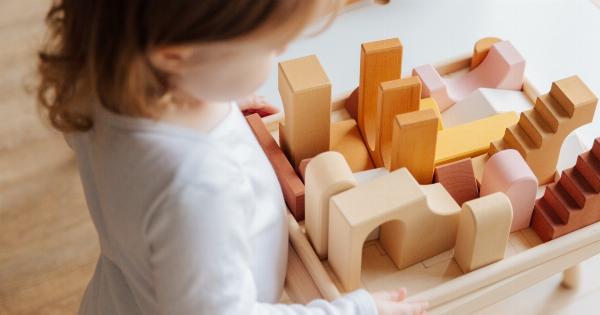Adolescence is a time of significant physical, emotional, and social change, as young people navigate the transition from childhood to adulthood.
Play is a fundamental aspect of childhood, but its role in shaping adolescent personality and behavior is often overlooked. Research has shown that play continues to be important for adolescent development, and can have a positive impact on their social, emotional, and cognitive development.
Play and Emotional Regulation
Adolescence is a time of heightened emotional intensity, as young people experience a range of emotions in response to the changes they are going through.
Play can be a valuable tool for emotional regulation, allowing adolescents to express and process their emotions in a safe and constructive way. Play provides a space for young people to explore different emotional scenarios, practice emotional regulation techniques, and learn to cope with challenging emotions such as anger and frustration.
This can help adolescents develop greater emotional intelligence, resilience, and self-awareness, as well as reducing the risk of mental health problems such as anxiety and depression.
Play and Social Development
Social development is a critical aspect of adolescent development, as young people begin to form their own identities and develop relationships with their peers.
Play can support this process by providing adolescents with opportunities to practice social skills such as communication, cooperation, and negotiation. Through play, young people can learn to communicate their ideas effectively, work collaboratively with others, and resolve conflicts in a constructive way.
Play can also help adolescents develop empathy and understanding towards others, as they learn to see things from different perspectives and appreciate the diversity of human experience.
Play and Cognitive Development
Cognitive development is another important aspect of adolescent development, as young people continue to build their knowledge, skills, and understanding of the world around them.
Play can support cognitive development by providing adolescents with opportunities to explore, experiment, and problem-solve in a safe and engaging environment. Play activities such as puzzles, games, and creative arts can help adolescents develop critical thinking, creativity, and problem-solving skills.
Play can also support academic learning, as young people engage with educational concepts in a fun and engaging way.
Play and Risk-taking Behavior
Risk-taking behavior is a significant concern during adolescence, as young people are more likely to engage in risky behaviors such as substance use, unsafe sexual practices, and reckless driving.
Play can provide a safe alternative to these risky behaviors, allowing young people to experience excitement, challenge, and novelty in a way that is safe and constructive. Play activities such as adventure sports, gaming, and creative arts can provide an outlet for risk-taking behavior, allowing adolescents to explore their boundaries and develop a sense of self-efficacy without putting themselves in danger.
Play and Parent-Child Relationships
Parent-child relationships are critical during adolescence, as young people navigate the challenges of this developmental stage.
Play can be a valuable tool for building and maintaining healthy parent-child relationships, as it provides an opportunity for parents and adolescents to connect and have fun together. Play activities such as board games, sports, and creative arts can facilitate bonding and communication between parents and adolescents, as they share experiences and interests together.
Play can also provide a platform for parents to teach important life skills such as cooperation, problem-solving, and conflict resolution.
Play and Peer Relationships
Peer relationships are also critical during adolescence, as young people begin to form their own social networks outside of the family.
Play can be a valuable tool for building and maintaining healthy peer relationships, as it provides a common ground for young people to connect and have fun together. Play activities such as team sports, gaming, and creative arts can facilitate social bonding and communication between peers, as they share experiences and interests together.
Play can also provide a platform for young people to practice important social skills such as communication, collaboration, and conflict resolution.
Conclusion
Play continues to be an important aspect of adolescent development, providing valuable opportunities for emotional regulation, social development, cognitive development, risk-taking behavior, and parent-child and peer relationships.
As such, parents, educators, and policymakers should recognize the important role of play in shaping adolescent personality and behavior, and work to ensure that young people have access to safe and engaging play opportunities throughout this critical stage of development.































